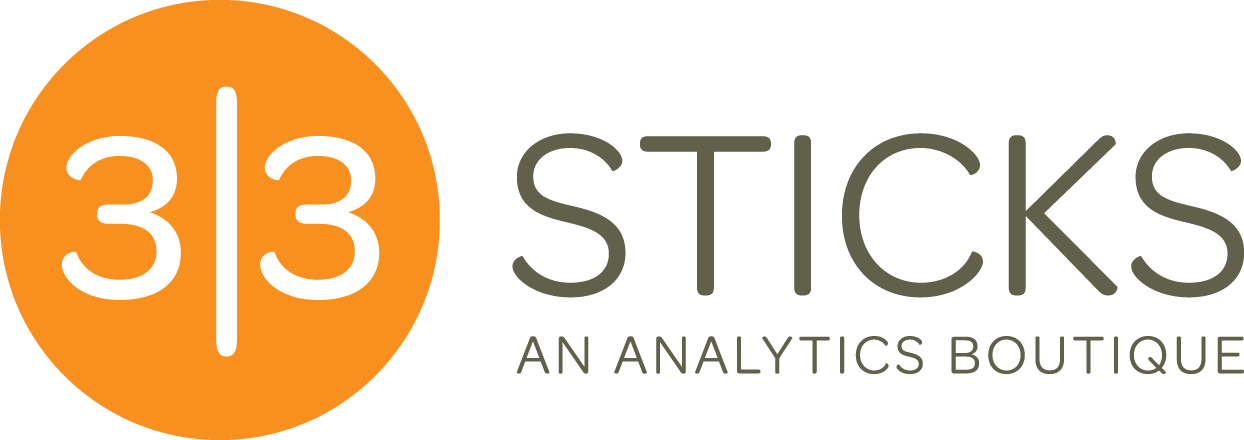You Don't Need to Be an Analyst to Think Like One
i need to tell you something that might change how you see yourself, You already have the capacity to be an analytical thinker. You don't need a statistics degree. You don't need to know how to query a database. You don't need to become an analyst. But you do need to start thinking like one.
This matters to me personally because i am an analyst, and i have a fundamental belief that every human can be an analytical thinker. In fact, it's part of my mission. You'll often find me on social media calling out people who misuse data, not to berate them, but to highlight how critical it is that we think carefully about the information we consume and share.
i see it constantly. People sharing anecdotes as if they're data. Broad conclusions presented without evidence. Headlines spread without anyone actually reading the study behind them. Data-free insights passed off as truth.
Why This Matters More Than Ever
Let me be direct about why analytical thinking is critical right now, on three levels.
First, your job depends on it. If you're in a knowledge-based role, the automation wave is coming. A lot of what we do in “office jobs” will be automated and outsourced. What will remain are the things that put the human at the center of the role and that's critical thinking. AI excels at rule-based tasks, at rote thinking. But humans still outperform AI when it comes to uncertainty and nuance. That's where critical thinking lives.
Second, your autonomy depends on it. We're getting bombarded from every angle. Brands want us to buy. Institutions want us to comply. Governments want us to behave. Cities want us to support their initiatives. Messages are flying at us constantly, crafted to influence us, to shape our decisions, to move us in certain directions. Being able to think critically about what's being presented to you isn't optional anymore, it's survival.
Third, our world depends on it. i believe a lot of the problems we're facing in the world stem from a failure of critical thinking. We've devalued these skills as a society, and it's made us more susceptible to control, more vulnerable to propaganda, more likely to reach poor outcomes. Critical thinking isn't just important to us individually. It's critical to us as a species, for the future of humans and the planet.
The Myth That's Holding You Back
Here's what happens when i tell people they need to analyze the data, they immediately say, "I'm not an analyst. I'm not a math person. I'm not a statistician. I don't know how to do the technical stuff."
Stop right there.
Those things, the technical tools, the statistical methods, the database queries, those aren't what make you analytical. Those are just specific tools and methodologies that can be used. Being an analytical thinker means something completely different.
It means you think critically about data. It means you ask pointed questions. It means you don't just accept what's being put in front of you. It means you question the validity of things. You ask: Can this be repeated? How was the data collected? How was it stored? How was it transformed? Did the person presenting this have an ulterior motive to shape the data in a certain way, to influence me in a certain way, to get me to do a certain thing?
That's analytical thinking. And you can do it.
The Chef and the Cook
Let me give you an analogy that might help
i'm a home cook. I have some tools that are available to professional chefs, and i can think like a chef when i cook. That means i prepare my meals in a certain way. i'm attuned to the quality of the ingredients i buy. i take care in each of the critical steps of prepping and cooking. i don't just slop food on a plate, presentation matters to me.
i think critically about how i present the food. i can think like a chef. But i'm not a chef.
It's not my full-time job. i don't have a professional kitchen. i don't have all the advanced equipment that chefs use every day. People don't pay me to cook. That's the difference.
i can still think like a chef and be a cook. But there's a difference between doing that day to day and doing it as your role, full-time, with access to advanced equipment you use constantly.
The same distinction applies to being an analytical thinker versus being an analyst. To be an analyst, you have to be an analytical thinker. An analyst is just a title, a role, something we do full-time as a job. We may have more tools and frameworks and methodologies available to us. But really, we're analytical thinkers. That's our role, our job, our focus.
You can be an analytical thinker without being an analyst.
Breaking Down the Barrier
i think this separation is really important because it's one of the things holding people back. They say, "I'm not an analyst. I don't want to be an analyst because I'm a marketer. I'm a doctor. I'm a dentist. I'm a parent. I'm a teacher. I'm a mechanic."
Fill in the blank with your specific role.
But in reality, all of those roles require analytical thinking. You don't need to be a chef, but you need to be a good cook who thinks like a chef. You don't need to be an analyst. Continue being a teacher. Continue being a parent. Continue being a marketer.
But to be the best at those roles, you have to think analytically.
How to Start
The first step is recognition. Recognize that you have this capacity. Recognize that analytical thinking isn't some mystical skill reserved for people with advanced degrees. It's available to you right now.
The second step is practice.
i put out critical thinking exercises every Friday on LinkedIn. i include critical thinking insights in my newsletters and social media posts. There's lots of great content out there. But honestly, you don't need special exercises. You have opportunities available to you every single day.
Look at what's being presented to you. Maybe it's an email you received. Maybe it's a request from a superior. Maybe it's a letter in the mail from your city. Maybe it's something being presented on the news. Maybe it's a political topic being discussed on Facebook.
All of these things, you can slow down and start thinking analytically about them.
Start asking questions like: What does this mean? What is the data behind it? Is it reproducible? What is the person's motive for sharing this? How should I be thinking about this? How does it impact me?
There are so many things on a day-to-day basis.
Just pick one or two this week. Spend five or ten minutes thinking analytically about them. You will start to hone your skills. You will become more analytical over time.
You may even want to become an analyst. But it's not necessary.
Do the thing you love. Be analytical in how you do it.
That's enough.
Want to build analytical thinking into your organization's DNA? At 33 Sticks, we help teams develop the critical thinking skills that make data meaningful, no matter their technical background. Let's talk about how we can empower your people to question, analyze, and make better decisions with the information in front of them.

